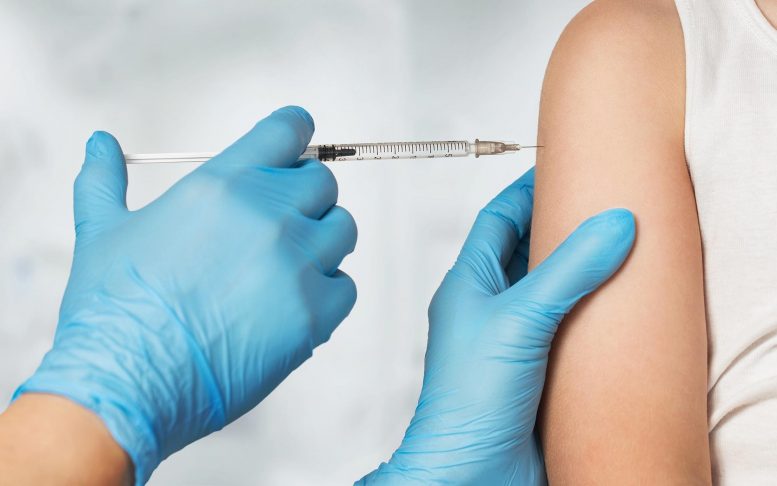Should we delay COVID-19 vaccination in children?
The net benefit of vaccinating children is unclear, and vulnerable people worldwide should be prioritized instead, say experts in The BMJ on July 8, 2021.
But others argue that COVID-19 vaccines have been approved for some children and that children should not be disadvantaged because of policy choices that impede global vaccination.
Dominic Wilkinson, Ilora Finlay, and Andrew Pollard say for a health system to offer any vaccine to a child, two key ethical questions must be asked. First, do the benefits outweigh the risks? Second, if the vaccine is in short supply, does someone else need it more?
“Careful attention to both questions suggests that we should not yet roll out COVID-19 vaccination to otherwise healthy children.”
They acknowledge that in older adults, the benefits of COVID-19 vaccines clearly outweigh the rare side effects. And in children with certain chronic or acute serious illnesses, they probably do, and these children should therefore have access to a vaccine. “But in otherwise healthy children, no one can currently be sure.”
But they say one thing we can be sure of is that in the UK, some people are currently at much higher risk from COVID-19 than healthy children. And most lower-income countries have fully vaccinated less than 5% of their community.
Some might ask, why do we have to choose? Can’t we vaccinate children as well as those overseas? But, to put it simply, there are right now a limited number of vaccine doses.
“As adults, we have had to wait our turn for the vaccine. We have understood that, given its scarcity, the vaccine has to be prioritized for people at the highest risk of dying.” This clear and inescapable ethic now applies to our children, they conclude. Their turn will come–but not yet.
But Lisa Forsberg and Anthony Skelton say that vaccinating children against COVID-19 protects them – and others – from the risk of harm and death from infection, and it is the best way to promote children’s well-being by minimizing the need for restrictions or disruptions to their lives resulting from failure to properly manage infection spread.
They say the argument that children are less likely to be severely harmed by COVID-19 infection, and they therefore benefit less from a vaccination protecting them from it, is mistaken.
“It exposes children to unknown risks of severe disease and of long-term health complications. Moreover, we now know that exposing children to those risks disproportionately harms already disadvantaged children.”
Another argument for delaying the vaccination of children is that priority should be given to older adults in developing countries where vaccine supply has been limited.
Yet they point out that currently global vaccine supply shortages result from policy choices.
“The ethically defensible choice is to exert whatever pressure we can to minimize vaccine hoarding and distribute vaccines to developing countries, while releasing patents and allowing the manufacture and supply of vaccines at a larger scale, to enable vaccination of adults and children everywhere,” they write.
They believe that accepting the “austerity” narrative that children must wait until the most vulnerable people in other countries can be vaccinated diverts focus from the real problem: that profits are valued over lives. “Here, as elsewhere, we are failing in our responsibilities to avoid aggravating existing injustice,” they conclude.
Reference: “Should we delay covid-19 vaccination in children?” by Dominic Wilkinson, Andrew J Pollard and Lisa Forsberg, 8 July 2021, BMJ.
DOI: 10.1136/bmj.n1687
Funding: The Wellcome Trust and the Arts and Humanities Research Council as part of the UK Research and Innovation rapid response to COVID-19.










Be the first to comment on "BMJ Experts: Should We Delay COVID-19 Vaccination in Children?"